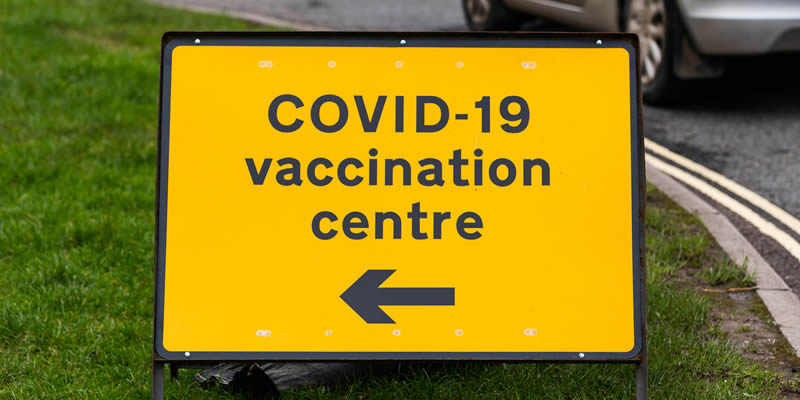The “vast majority” of people taking immunosuppressants to treat autoimmune conditions produce antibodies in response to the COVID-19 vaccination, researchers have demonstrated.
While the findings do show their responses are only about one-third as strong as those in people who don’t have weakened immune systems, the team behind the study say there is “clearly a benefit” to this population having the vaccine.
Researchers from the Washington University School of Medicine studied people taking immunosuppressive medications to treat chronic inflammatory conditions including inflammatory bowel disease and rheumatoid arthritis.
- Vaccinations are not as effective against the Lambda strain of COVID-19, evidence reveals
- More than a third of people admitted to hospital with Delta variant of COVID-19 are fully vaccinated, new data shows
Co-senior author Dr Alfred Kim said: “Some of our patients have been hesitant about getting vaccinated, which is unfortunate because they are at increased risk of having more severe cases of COVID-19 if they happen to get infected, compared to those not taking immune suppressing drugs.
“Some of them are worried that vaccination might cause their disease to flare, but we haven’t seen that happen. Others don’t see the point of vaccination, because they think the drugs they’re taking to treat their autoimmune condition will prevent them from producing an immune response to the vaccine. What we found here is that the vast majority of immunocompromised patients with autoimmune diseases are able to mount antibody responses following COVID-19 vaccination. There’s clearly a benefit for this population.”
The team looked at 133 patients compared to 53 healthy people. They found that two types of medication resulted in notably weak immune responses. In people taking glucocorticoids, only 65% developed an antibody response that could be detected. The figure for people taking B cell-depleting therapies was 60%.
However, it was found that the antibody response in people taking antimetabolites including methotrexate, TNF inhibitors or JAK inhibitors, was not significant weaker than those who were not on this medication.
- One in four people should expect mild symptoms after COVID vaccine
- UK vaccination programme is breaking COVID and death link
The researchers have said that it is hard to say if those on immune suppressing drugs generate an antibody response that is high enough to protect them from severe COVID-19. This is because it is not yet known what the minimum level of antibodies is needed to protect people.
The study’s co-senior author Dr Ali Ellebedy said: “We just don’t know whether people who had low but detectable levels of antibodies are protected or not. It’s that uncertainty that justifies the need for a third dose, especially since we have these highly infectious variants that are capable of causing breakthrough infections even among healthy people.”
The study has been published in the Annals of Internal Medicine.







